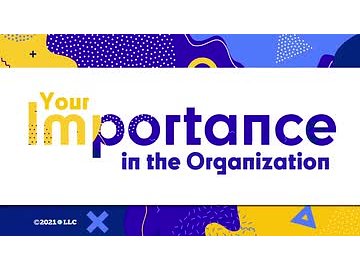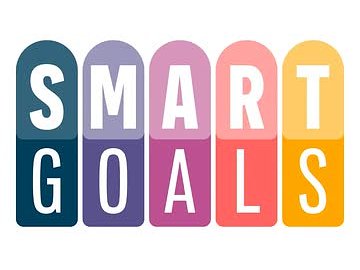Personal Development
Last Updated 04/2023
English
30-Day Money Back Guarantee
Full Lifetime Access
Finish in
145 mins! Run Time
145 mins! Run Time
Made for for
Employees
only
Employees
only
Certificate
of Completion
of Completion
Mobile -
Friendly
Access
Friendly
Access
What you'll learn
To identify the skills and capabilities you need to develop to excel in your job and career
To build your career you need opportunities
Description
To build your career you need opportunities. The more opportunities you have, the better chance you have of moving into a role that is exciting, challenging, and fulfilling. One of the best ways to create more opportunities is to build your skills and capabilities. The more skills you have, the more marketable you'll be, and there's one thing you can be sure of - all managers want to hire talented employees. For this course, you will follow a process to identify the skills and capabilities you need to develop to excel in your job and career. By completing this course, you will be able to create a personal skill development plan.
System Requirements
• Windows 7 and newer
• Mac OS 10 and newer
Supported Browsers:
The current and previous major releases of the following browsers
• Safari v11 and higher
• Firefox v65 or higher
• Chrome v70 and higher
• Microsoft Edge v42 and higher
• Internet Explorer v11 and higher (Windows only- may exhibit visual differences from other
browsers)
Computer Speed and Processor:
• Use a computer 5 years old or newer when possible.
• 1GBofRAM
• 2GHz processor
Personal Development

Recovering From Mistakes
It can be very difficult to deal with the aftermath of making mistakes at work, especially when it has a big impact on the organization. You might feel overwhelmed, and even scared, afterward, but rest assured, there's a way to recover from making mistakes. In this course, we'll talk about how to handle these situations. We'll discuss things like accepting responsibility, making amends, preventing future mistakes, and staying positive as you forge ahead through this situation.

Imposter Syndrome
Have you ever felt like you're in way over your head, or been afraid that you'll be exposed for not knowing what you're doing? Most of us experience something like this at some point in our careers. It's called imposter syndrome, and it can make you feel like a fraud when, in fact, you're fully deserving of your accomplishments. In this program, we'll take a deeper look at this phenomenon, discussing what it is and how it affects people. We'll also cover some various ways to overcome your doubts and lulls in self-confidence.

Becoming Detail Oriented
A detail-oriented person is always looking for ways to improve themselves, thinking carefully about how their actions might affect the future, and keeping track of important dates and times. You might know people like this at work and admire the way they're organized and prepared. Being detail oriented can help position you as a reliable and trustworthy person, make it easier to achieve your goals, and allow you to pull key details and insights out of large amounts of data. While some people are naturally detail oriented, others need to work on developing that skill. That's what we'll talk about in this course. We'll cover communication, organizing your workspace, to-do lists, reviewing your work, and more.

Taking Initiative
Businesses want employees who can think on their feet and act without waiting for someone to tell them what to do. It's that kind of flexibility and courage that can drive your company to beat the competition. In this course, we'll define what initiative looks like and how it can benefit you when you use it at work. We'll also discuss how to develop and improve your initiative. We'll talk about creating a career plan, expanding your responsibilities, looking for opportunities for improvement, and requesting feedback.

Your Importance in the Organization
The work you do determines the success of your organization. Your talent and efforts have a major impact on company growth, and your skills and knowledge are very difficult to replace. Because of this, you're an important asset to your organization. And because value often gets rewarded, we'll talk about how you can add more value to your organization to help further your career within your company. We'll discuss showing initiative, improving productivity, finding solutions, and meeting expectations.

Career Change
So, you're not so sure about your current job, and you're thinking about getting a new one. But not just at a different company: in a different field, or in a totally different capacity than your current job. You're looking at a career change, and it can be daunting. Luckily, there are ways you can plan and prepare for a career change, to increase your odds of success. That's what we'll cover here. We'll discuss getting focused and narrowing down your options. We'll go over preparing your resume to put your best foot forward, and we'll cover how to get prepped and ready for interviewing.

Developing Your Strengths
This course focuses on identifying, building, and applying personal strengths for long-term career success. Learners will discover how to pinpoint their strongest skills, align them with professional goals, and develop them through targeted strategies. By practicing goal-setting and intentional reflection, you can turn your strengths into drivers of both performance and fulfillment.

Learning Styles: 01. The Brain's Function
Learning is your brain’s most powerful skill, and this course is all about how it happens, from the parts of the brain involved to learning styles and applications. By learning how your brain works, you can pick up skills to enhance your personal and professional growth.

Learning Styles: 02. Exploring the Seven Styles
Understanding the seven different learning styles and how they impact the way you absorb and process information can help you become a lifelong learner. You can enhance your personal learning strategies and improve collaboration with others. This course provides valuable insights to help you thrive in any learning environment.

Learning Styles: 03. Developing Your Style
This course is designed to help you discover how to absorb and retain information in ways that work best for you—whether through visuals, sound, hands-on activities, or reflection. You’ll explore practical strategies to combine learning methods for longer lasting and more durable results.

Learning Styles: 04. Managing Different Styles
In today's diverse workplace, understanding and managing different learning styles is crucial for effective training and development. This course explores how to identify and accommodate various learning styles to enhance employee engagement and productivity. By tailoring training strategies to meet your team’s needs you can create a dynamic and inclusive learning environment.

Giving Advice
Giving advice is tricky. You've likely received great advice in the past. Perhaps you sought it from someone whom you trusted to provide solid guidance. On the flip side, you've also probably received bad advice, or unsolicited advice from someone. When a person comes to you for advice, particularly in the workplace, you need to handle it delicately. In this course, we'll talk about what to do when this instance occurs. We'll go over the importance of listening and determining what the other person really needs. We'll give insight on how to provide helpful advice and how to support the person, whether they follow your advice, or not.

Not Every Great Employee is Management Material
You have a great employee. She's on time. She exceeds the performance of her peers. She's likeable, and she's maxed out her potential salary in her job. After five years in that role, the next logical move is a promotion to management, right? Well, is it logical? Will her skillset translate into management? Does she possess the skills of an ideal management candidate? Does she even want to be a manager? Those are the questions you need to be asking, and that's what we'll be covering in this course. We'll talk about Peter's Principle, employee skillsets, ideal management characteristics, and what to do if you determine your employee isn't quite suited for management.

The Four Attachment Styles
There are several psychological theories that can aid in your business practices. Perhaps you've had your staff take tests to determine their personality types or leadership styles. There's one psychological theory that you may not be familiar with, called the Four Attachment styles, which can help your day-to-day work. In this program, we'll talk about what this theory is all about, and help you to determine your own style and the styles of others. Similar to the other theories, having an understanding of this concept will help you to build stronger relationships, work with others more successfully, and deal with conflict in a more effective way.

Taking Control of Your Career: 01. Career Planning
It’s easy to get complacent about professional development when you’re currently employed. You can easily consume yourself with the day-to-day hustle, not taking time to increase your skill set. Making an effort to grow will help you become more successful in the long run. However, your goals are only as effective as the plan you create to accomplish them. So, in this program, we’ll talk about the importance of having a strategy and then discuss putting a realistic plan in place. We’ll go over the concept of “dreamstorming” and touch on setting achievable goals that are time-based. We’ll also cover utilizing resources and explore some tips for successful career planning.

Taking Control of Your Career: 02. Knowing Yourself
There could be several reasons why you aren’t moving forward in your career. Perhaps there’s no position available at your company. Maybe your boss doesn’t think you’re ready to move up to a higher role. Maybe you haven’t given it much thought! But part of taking control of your career involves knowing yourself. How do others perceive you? What skills do you have, and what skills do you need to develop? What are some of your weaknesses? You’ve got to be honest with yourself if you want to grow. In this program, we’ll discuss strategies to becoming more self-aware in order to advance in your career. We’ll go over internal and external self-awareness, knowing your skill set, seeking feedback, and more.

Taking Control of Your Career: 03. Taking Action in Your Career
According to James Clear, author of “Atomic Habits,” “Every action you take is a vote for the type of person you wish to become.” Individuals who have the most career success are the ones who take steps towards self-improvement, and do not stay stagnant. In this course, we’ll look at some moves you can make to take control of your career path. We’ll discuss getting a plan in place, taking initiative, nurturing your network, and communicating your goals and next steps.

Bring a Solution, Not Just the Problem
Mistakes happen. Perhaps you inadvertently send a customer the wrong information. Or maybe you notice a colleague's error. Reporting these mistakes is often essential to having them corrected. However, coming to your supervisor with nothing but an issue isn't ideal. Your boss has a lot on their plate, and now you're adding a problem to it. What can you do to change that? Offer a solution! In this course, we'll talk abut how to do exactly that. We'll discuss ways to approach your boss with a concern. We'll look at why the problem occurred and help you determine solution ideas.

Unconscious Bias: 01. What Is Unconscious Bias?
Nearly 60% of CEOs in Fortune 500s are six feet tall. However, less than 15% of Americans are six feet tall. Does that mean that tall people are smarter and make better leaders? No, of course not. It's a reflection on how we view power and authority, and it's a prime example of unconscious bias. In this course, we'll define what unconscious bias is, and discuss how it permeates society, workplaces, and even our own thoughts. We'll go over where these biases come from and how we can recognize them within our own perceptions. We'll go through some examples of how unconscious bias shows up at work. And lastly, we'll discuss micro affirmations, micro-aggressions, conscious and unconscious discrimination, and the legal consequences associated with these issues.

Unconscious Bias: 02. Types of Unconscious Bias
The more we learn about unconscious bias, the more types of biases we discover. Some sources have categorized over 150 types of biases! But in this program, we're only going to cover a few, to get you thinking about how often we rely on unconscious bias, particularly at work. Some types that we'll discuss include confirmation, affinity, perception, conformity, and attribution biases. We'll also go over the halo and horns effects, as well as availability heuristic, functional fixedness, and the contrast effect.

Unconscious Bias: 03. Overcoming Unconscious Bias
Unconscious bias is a result of our brain's natural processes. In fact, it's what allows us to make quick decisions, even with limited information. However, in a successful and ethical work environment, we still have to limit the decisions that we make unconsciously. The reality is that it's difficult to overcome biases, because it intuitively feels correct when you reach a conclusion based on them. It's hard to recognize when to fix something that doesn't feel wrong. In this program, we'll talk about how to address this situation. We'll go over ways to become more aware of your bias blind spots. Then, we'll discuss how to overcome those unconscious biases, turning them into conscious, intentional thoughts and decisions.

Asking for Feedback
Career success and professional growth are closely related. But you can't get very far without knowing how you're doing, so feedback is essential. In this course, we'll talk about how to get meaningful feedback from your coworkers, managers, and peers, so you can continue to develop and advance in your career. We'll also go over types of feedback and when and how to ask for input.

Making Sense of Feedback
Throughout your career, you'll receive feedback from various sources. Sometimes, it arrives at just the right time, and it's actionable, clear, and fair. However, sometimes it can be unclear, or it might come at a time when you're just not ready to receive it. In this course, we'll talk about how to be open to feedback and turn it into something that benefits you. You'll learn how to manage emotions, categorize feedback, and handle actionable and nonactionable feedback.

Identifying Your Strengths
Identifying your strengths is crucial for personal and professional growth. Often, we undermine our abilities, either brushing off compliments or letting criticism overshadow our achievements. In this course, we're going to focus on the positive and discuss the importance of knowing your strengths. Explore how to identify them and look for ways to use them to your benefit.

SMART Goals
Setting goals is easy, but achieving them? That's where the real challenge begins. SMART goals provide a game-changing approach to turning ideas into reality by ensuring they are specific, measurable, achievable, relevant, and time-bound. Instead of vague ambitions that fade over time, SMART goals give you a clear roadmap, keeping you focused, motivated, and on track.
Frequently Asked Questions
This course is designed for employees who need to complete Personal Development training
Yes. This course is designed to meet applicable federal requirements and commonly mandated state standards. Always confirm specific state or industry requirements with your local regulations.
The course takes approximately 145 minutes to complete and can be paused and resumed at any time.
Yes. Learners receive a downloadable certificate upon successful completion, which can be used for compliance records and audits.
Yes. You can assign this course to individuals or groups using Coggno’s LMS, or purchase multiple seats for your team.
Yes. This course can be exported for delivery in most learning management systems (SCORM compatible).
Yes. The course is fully self-paced and available 24/7.
Yes. This course includes a knowledge check to reinforce learning and verify completion.
Learners have lifetime access from the date of purchase.
Yes. A preview is available so you can review the course format and content before purchasing.
Yes. Content is reviewed and updated as regulations and best practices change.
Yes. This course is available for free with an active Prime Subscription.
Yes. Refund requests can be submitted within 30 days of purchase.

